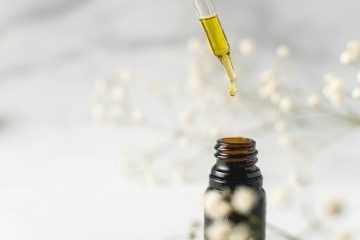If you are considering using CBD oil to treat your aches and pains, you may be wondering, “Can I overdose on CBD?” While there are some cases of people who have accidentally overdosed on CBD, the answer to this question is not always yes. The dosage of CBD you need to take will depend on your body chemistry, the condition you are trying to treat, and your weight.
Toxic doses of CBD are not the same as lethal doses
It’s important to understand the difference between toxic and lethal doses of CBD. For the average person, there’s little to worry about ingesting too much. However, if you’re concerned, you can experiment with different dosages to see what you can tolerate.
The FDA has guidelines for the safe consumption of CBD. These assume that an average adult consumes about 50 mg per day. As a result, the margin of safety is about 221 mg/kg. That means that the amount required for a lethal dose would be hundreds of times higher than what you could ingest accidentally.
Some studies have shown suboptimal liver injury, but other findings indicate that there’s no risk of toxicity. This is because only about 6-19% of CBD can be metabolized after it is consumed.
Studies have also suggested that high therapeutic doses of CBD may lead to serious hepatotoxicity. Several variables, including dose and metabolism, affect how this occurs.
In one study, patients who received CBD with other antiepileptic drugs had elevated serum aminotransferases. The levels eventually returned to normal after the drugs were stopped. During this study, 11 patients experienced protein levels that were above the upper limit of the reference range.
In contrast, CBD-only doses of up to 62 mg/kg were associated with no adverse events. A 56-year-old man ingested two gummies. According to the authors, the reaction may have been caused by the presence of unknown contaminants in the gummies.
There are no other published studies examining overdoses of CBD. Although CBD’s effects are relatively rare, more research is needed to find out what the true health risks are.
Because of the paucity of human studies, it’s difficult to accurately assess how harmful CBD can be. However, this doesn’t mean you should ignore potential risks. If you’re concerned about the safety of CBD, consult with your physician or a poison control center. Regardless of the level of CBD you’re taking, you should take extra precautions when you’re around other people.
While CBD has a wide variety of medicinal uses, there’s little evidence that it has a high risk of dependency or that it has a lethal dose. Until more research is completed, it’s best to take precautions.
CBD tolerance levels depend on your weight, body chemistry, the desired effect, and the condition you’re addressing
CBD has a lot of buzz around it, and for good reason. One of its touted benefits is that it’s non-psychoactive. Whether you’re a fan of weed or not, you can probably appreciate the fact that cannabis has come a long way since the days of the kool-aid, black-market cigarettes, and the like. It’s not all bad news, either. With the right amount of dedication, you can get a taste of the good stuff and enjoy it without the negative side effects. The trick is to find the right blend of cannabis for you. Fortunately, many companies are willing to work with you to find out what’s best for you. This will help you in a number of ways, from choosing the right strain to figuring out the best time of day to consume it.
As far as dosage goes, it’s a good idea to consult a physician before committing to a regimen. The most effective dose is the one that you can tolerate, and this may take a while to determine. However, as a guide, here are some of the more important points to remember. A dosage of three to five milligrams per kilogram of body weight is usually sufficient, as a rule of thumb. You should also consider adjusting your intake at night to avoid the morning jitters.
In addition, don’t forget to factor in any other medications you’re taking as well. Also, don’t forget to eat at least two to three servings of fruits and veggies every day, as it will help your overall health in the long run. Lastly, make sure to exercise regularly to keep your immune system at peak performance. Considering all of this, CBD is a worthy addition to your healthcare arsenal. Hopefully, you’ll be well on your way to a better and healthier you in no time.
Side effects of CBD overdose
When taking CBD, you must be aware of the possible side effects. They include drowsiness, nausea, and diarrhea, but are not fatal. If you are experiencing these symptoms, you should consult your healthcare provider. The side effects will go away in a few hours. However, if you are experiencing a more serious symptom, such as difficulty breathing, you should seek medical attention immediately.
Overdoses of cannabidiol (CBD) are rare. Most people will not experience an overdose of more than a few hundred mg. But, some individuals can experience an overdose of more than a thousand milligrams.
Some of the most common side effects of CBD overdose are nausea, diarrhea, and sleepiness. These are not dangerous and can be relieved by consuming more than one serving.
If you think you have overdosed on CBD, you should decrease your dosage as soon as you can. You should also call your healthcare practitioner if you notice other symptoms.
There is no evidence that an overdose of CBD is fatal. In fact, there is a great deal of evidence that it can help treat many health conditions, including depression, anxiety, pain, nausea, and sleeplessness.
There is some evidence that CBD can interact with certain medications. You should avoid taking any drugs that interact with it.
If you do decide to take CBD, you should start with a very small dose. Do not use a higher dose if you have pre-existing medical conditions. Also, if you are taking other medication, make sure you consult with your doctor before you begin.
The main danger of overdosing on CBD is dehydration. You should drink plenty of water when you are taking this medication. Dehydration can be treated with simple hospital equipment.
The National Cancer Institute has not found any evidence that an overdose of CBD is fatal. However, it has noted that an overdose of cannabidiol has been documented in case studies.
If you are concerned about an overdose of CBD, you should relax and take a deep breath. You should also focus on the good things.
THC in cannabis products can cause an overdose
A recent report from the Centers for Disease Control (CDC) suggests that THC in cannabis products can cause an overdose. However, experts don’t agree on whether this is a real danger.
Marijuana edibles and drinks can become deadly if someone eats too much of them. For example, a 19-year-old college student in Wyoming jumped off a hotel balcony after ingesting a THC-infused cookie.
Although this case is rare, it is a reminder that a marijuana overdose is never fun. Symptoms can include hallucinations, panic, and psychosis. It’s best to seek medical help as soon as possible.
There’s a growing number of cases of accidental overdoses among children and young adults. Emergency rooms in several states are seeing an increase in cases.
One source notes that marijuana edibles are particularly dangerous to children. Kids’ bodies are smaller and therefore more vulnerable to overdosing. They also tend to have less tolerance for THC.
The Washington Poison Control Center reports that 163 children under the age of 12 have had a THC intoxication in the first nine months of 2020. Other sources point to discrepancies in the CDC’s report.
Another source indicates that the amount of THC in a marijuana edible may be difficult to accurately measure. In some states, edibles can contain more than 10 doses of THC per package.
It’s also important to know that THC is metabolized differently when it’s eaten than when it’s inhaled. Therefore, it can take a long time for the body to absorb the substance.
While it is unlikely that you’ll die from an overdose of THC, you should always stay hydrated and seek emergency medical help if you notice any bad symptoms. If you’re experiencing nausea, drink lots of liquids and snack. You can also ask a friend who has had an overdose experience for advice.
As with all drugs, overdosing on marijuana can lead to serious health problems. Fortunately, most of these cases aren’t fatal. Nevertheless, it’s a good idea to learn how to recognize an overdose and what to do if you or a loved one have ingested a large amount of marijuana.


